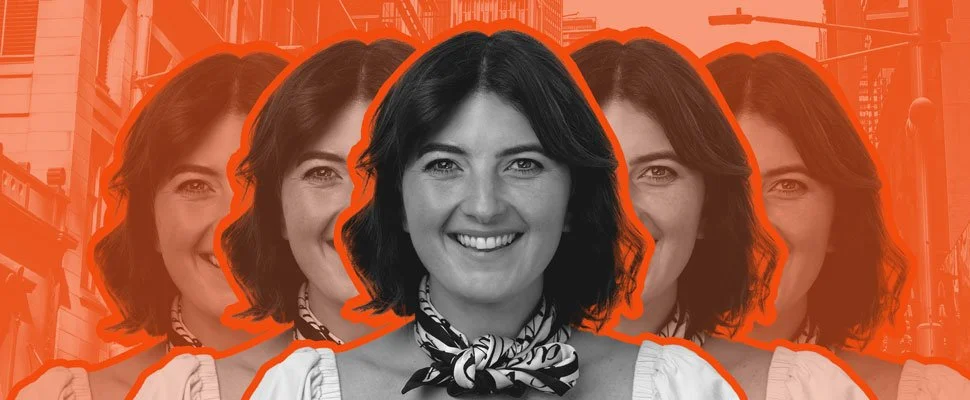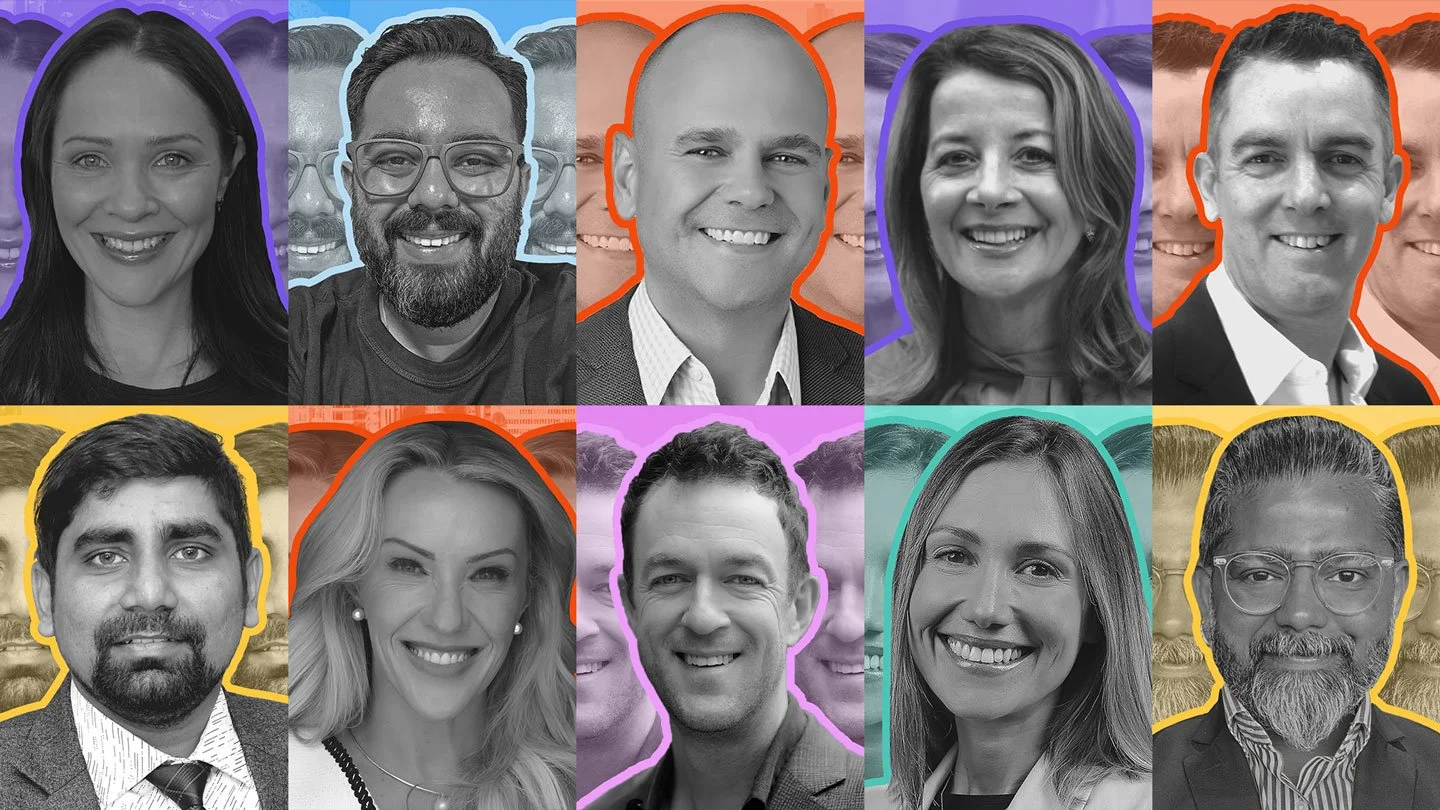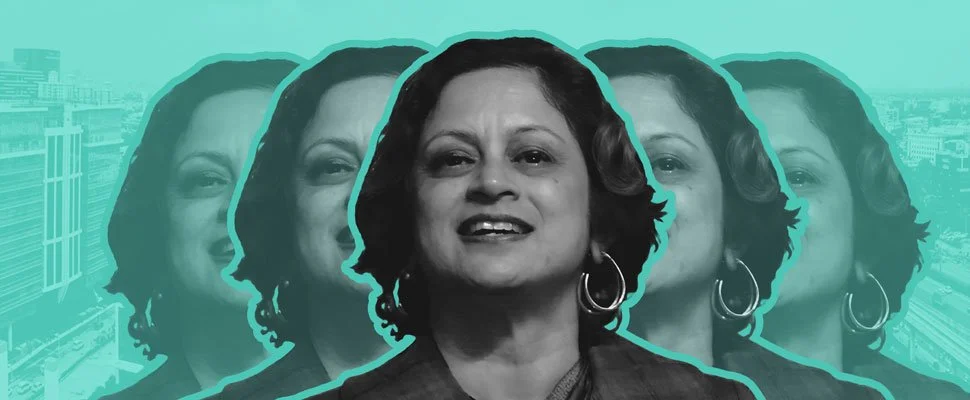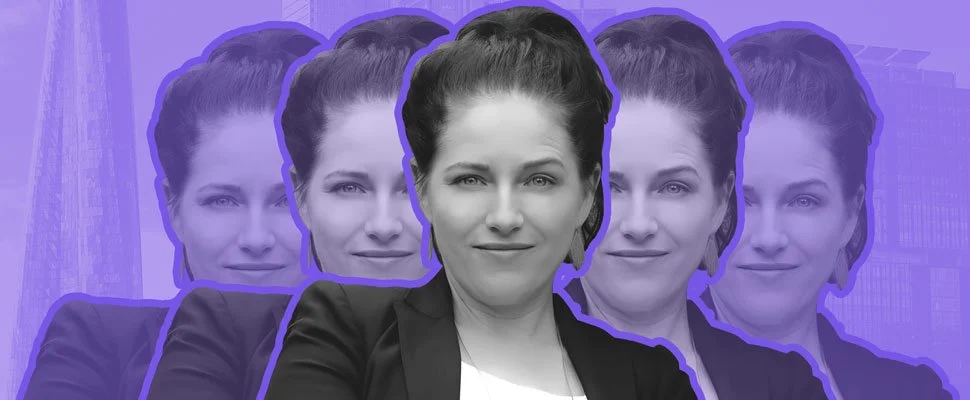Human on the Inside with CMi Merryck’s Angela Mentis
Human on the Inside. We’re big believers in the power of human skills. But don’t just take our word for it - the evidence for excellence powered by human (‘soft’) skills is everywhere! In this engaging, ever-enlightening series, we speak with industry leaders, innovators and game-changers to learn a little about their personal career journeys, and how human-led strategies, philosophies and cultures are proving a force for good in their working worlds …
Maxme: Welcome Angela (Angie), and thanks for stepping into the #SuccessIsHuman spotlight. As one of the foremost business, retail, institutional banking and wealth management Executives in AU-NZ, your impressive career spans nearly four decades.
In the here and now, you’re an Executive Mentor for CMi Merryck - a global firm of experienced CEOs and top business leaders who help organisations accelerate the impact of leadership. In 1 sentence (ok, we’ll give you 3), what does your role entail?
In 1 sentence (ok, we’ll give you 3), what does this role entail?
Angela Mentis: The mentor-mentee relationship is crucial and must be based on trust and respect. My role is to understand the mentee's industry, goals, ambitions, values, strengths, and development opportunities, and use my experience to enable the mentee to realise their potential both professionally and personally. John Maxwell, an author on leadership says it beautifully “one of the greatest values of mentors is the ability to see ahead what other cannot see and to help them navigate a course to their destination”
M: While this latest role sounds beautifully matched to your professional pedigree, your extensive career is of course much deeper.
You were appointed Chief Digital, Data & Analytics Officer, NAB in October 2021 until October 2023, and prior to this, held the role of Managing Director & CEO BNZ from January 2018 - September 2021, where you also served as a director.
Featuring additional tenures at BT Financial Group, Westpac and Citibank, your CV also includes an important role as Business Champion for the Australian Government’s New Colombo Plan, an initiative which aims to lift knowledge of the Indo Pacific in Australia by supporting Australian undergraduates to study and undertake internships in the region.
How does all your work speak to your personal purpose and what drives you as an individual?
AM: I have always been motivated to make a difference. Whether that is helping grow and develop people to exceed their potential; helping customers achieve their financial goals or handing the business I have been the steward of to the next leader in stronger shape.
Maya Angelou said, “people will forget what you said, people will forget what you did, but people will never forget how you made them feel”. I am driven to have this legacy and leadership impact in my career and personally.
M: Tell us a little about your personal education pathway/s - what led you to where you are now? How closely do your formal qualifications match your current career?
AM: My earliest learnings were in my parents' cafes. I saw my parents' genuine interest and care for their customers. They personalised every interaction. There is a story which I think really demonstrates how important it is to put the customer first. Dad had a cafe in the same building as the family law courts and he would serve lunch when it needed to be, whether it was 10.30am in the morning or 4pm in the afternoon. My parents knew their customers' names, what their orders were; many of which weren’t on the menu, but that didn't matter. It shaped me and taught me the fundamentals of customer and people relationships.
In high school I enjoyed economics and completed 2 and 3 Unit for the HSC and did very well. I studied a Bachelor of Business Finance and Economics. This led me to an internship at Macquarie Bank.
My love of economics, and the customer service ethos embedded in me through my parents led to a 37-year career in financial services where I found joy, inspiration and lifelong learning from serving customers and people.
M: If you could share one piece of career advice to your 21-year-old self it would be ...
AM: I would give my 21-year-old self the same advice my parents gave me when I embarked on my career “to stay true to my identity and always remember where I came from”. I would add “be authentic, bold, and courageous”. These values have guided me on my life's journey.
M: Maximising the potential of individuals, communities, and businesses through the power of human skills is the reason Maxme exists. Can you tell us a little about the role and / or value of human skills in your work right now?
AM: Human skills are necessary for building authentic relationships, empowered teams, effective decision making and allow you to see the organisation as a whole. Human skills allow the leader to communicate and motivate the organisation.
The executives I am partnering with and mentoring are in the CEO succession process in their organisations. Understanding and developing their human skills is essential and crucial if they are to be successful in attaining their ambitions.
I will be working with my mentees through assessments, interviews and time together to understand what their human skills strengths are and where we need to work on others that are necessary for their success.
M: Self-Awareness sets the critical foundation for all Maxme learning experiences. With that said … what’s are your strongest traits/ personal superpowers?
AM: Empathy, grit and courage.
M: And on the flip side, what’s one human / ‘soft’ skill you’ve had to really work on improving over the course of your career?
AM: Effective communication. I realised as a leader you don’t have to have all the answers. Your role is to effectively listen, not just to the words and information being communicated but the emotions being conveyed. How do you listen and ask the right questions to help your team solve the problem?
During my time as CEO of BNZ we worked hard to create an environment and the conditions that valued inclusion and diversity. I believe much of the innovation we experienced was because of the inclusive culture and authentic workplace we enabled. Colleagues collaborated and we were able to bring new ways to look at issues, problems and drive creativity and innovation. I learnt that you must be purposeful about being inclusive and take a system thinking whole of organisation approach.
M: If you could share one piece of career advice with recent Uni graduates or candidates keen to work in a field like corporate and institutional banking, what would it be?
AM: Be passionate about working with, and deeply understanding, corporate and institutional clients and the industries they are in. This field requires building trusted relationships with the decision makers in these organisations and helping them to solve their strategic problems and achieve their strategic ambitions.
The solutions could include, for example, debt structuring and financing, advisory, trading and research services, mergers, acquisitions, and divestments.
These clients also value you leveraging the best of your organisation to assist them. I recall when I used to host (with our CFO) dinners with the CFOs of the corporate and institutional clients and bring in speakers on topical issues. Another time I engaged our head of Investor Relations to meet with one of our Institutional clients to seek advice on how to approach a particular issue they were facing. These are invaluable and assist in deepening the relationship. So, you also must be curious and think creatively about how you can be adding value to these clients.
M: You have been granted approval to add one University graduate to your business, but have 100 applicants, all with outstanding academic results. How do you find your perfect candidate - what are you looking for?
AM: To find the right candidate, I would ask the applicants to participate in some situational scenarios where I could observe as a minimum, the following –
Their critical thinking and problem solving
How are they collaborating?
Are they curious? What sort of questions are they asking to understand?
Did they exhibit empathy and adaptability during the various scenarios?
M: In the words of John Dewey, “education is not preparation for life, education is life itself.”
What is next on your #learning agenda?
AM: Such a powerful and true statement.
I am enjoying being creative in the kitchen and showing my family how much I love them through my cooking. And I am enrolling in an art course. I have always wanted to learn how to draw and paint properly.
Angela Mentis
Board Director | Executive Mentor | Transformational Leader
As CEO of Bank of New Zealand (2018-2021), I became the first female CEO and built a high-performance culture recognised for sustainability leadership, digital innovation and customer excellence. Under my leadership, BNZ cemented its position as New Zealand's leading business bank while delivering strong financial and customer results.
As NAB's Chief Digital, Data & Analytics Officer (2021-2023), I accelerated the bank's digital transformation, bringing a humanistic customer mindset to technology and creating design led experiences for customers and colleagues.
My executive journey spans leadership roles at NAB, Citibank, Westpac, BT Financial Group and Macquarie Bank, consistently delivering results through authentic, purpose-driven leadership.
To start developing your human skills today, simply download the Hodie app, or explore Maxme’s menu of human skills programs for organisations or schools.
Prefer to talk through your options? Contact us at any time.










